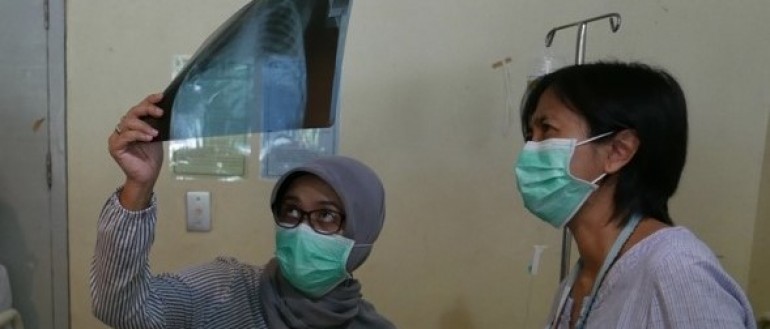Tuberculosis (TB) is a disease caused by the bacteria Mycobacterium tuberculosis. TB most often affects people’s lungs, making them sick with symptoms like cough, fever, and weight loss. TB spreads through the air when people with TB disease in their lungs cough, sneeze or speak, and other people breathe in the TB bacteria.
TB is preventable, treatable, and curable. Yet, if untreated it can cause severe disease, disability, and death. Every year, around 10 million people become sick with TB and around 1.5 million people die from it, making it one of the world’s leading infectious causes of death.
TB is present all around the world, including in Australia. Yet, the burden of TB tends to be greatest in low and middle-income countries. This can be due to factors such as, poor access to health services, crowded living conditions, and undernutrition which increase the risk of TB spreading and making people sick.
Menzies works to address TB in Northern Australia and in our regional neighbours. Our location in Darwin places Menzies at the junction between the Western Pacific and South-East Asian Regions, which combined, account for around two-thirds of the global burden of TB.
The Menzies TB Research Program works with partners in Northern Australia, Indonesia, Malaysia and Timor-Leste to end the TB epidemic through implementation research and health system strengthening.
Our research focus:
- Measuring the burden of TB in Timor-Leste
- Supporting the diagnosis and treatment of drug-resistant TB in Mimika, Indonesia.
- Improving the rollout of TB active case finding activities and use of TB preventive treatment.
- Using genomic methods to improve our understanding of the epidemiology of drug-sensitive and drug-resistant TB in Australia and the region.
- Supporting health system strengthening for TB management through continuous quality improvement and better use of data.
- Co-designing strategies and models to improve screening, diagnosis, treatment, and prevention of TB in Aboriginal communities in remote Northern Australia.
Our research impact:
- The National TB Prevalence Survey of Timor-Leste, a collaboration between Menzies and the Timor-Leste Ministry of Health, has screened over 15,000 people across the country and is providing new insights into the burden of TB in Timor-Leste.
- Mimika District in Central Papua, Indonesia, where Menzies has provided long-standing support, has become one of the highest performing districts for TB case finding in Indonesia.
- Menzies has supported the implementation of a new shorter regimen (known as 3HP) for treatment of latent TB infection in the Northern Territory. This safe and effective regimen reduces treatment duration from nine months to 12 weeks, helping to improve treatment uptake and completion.

